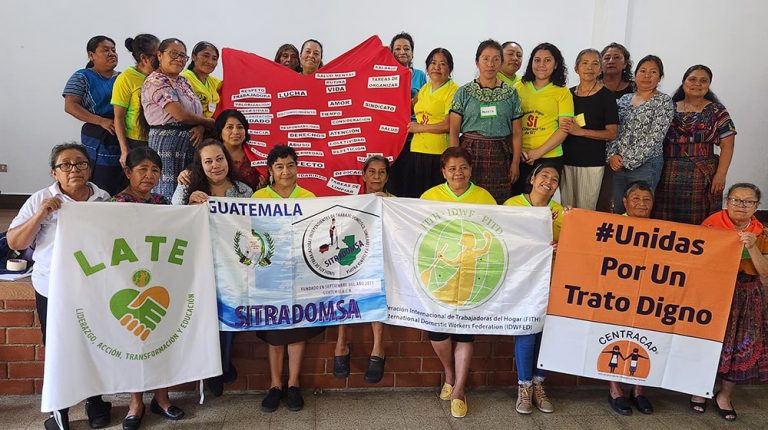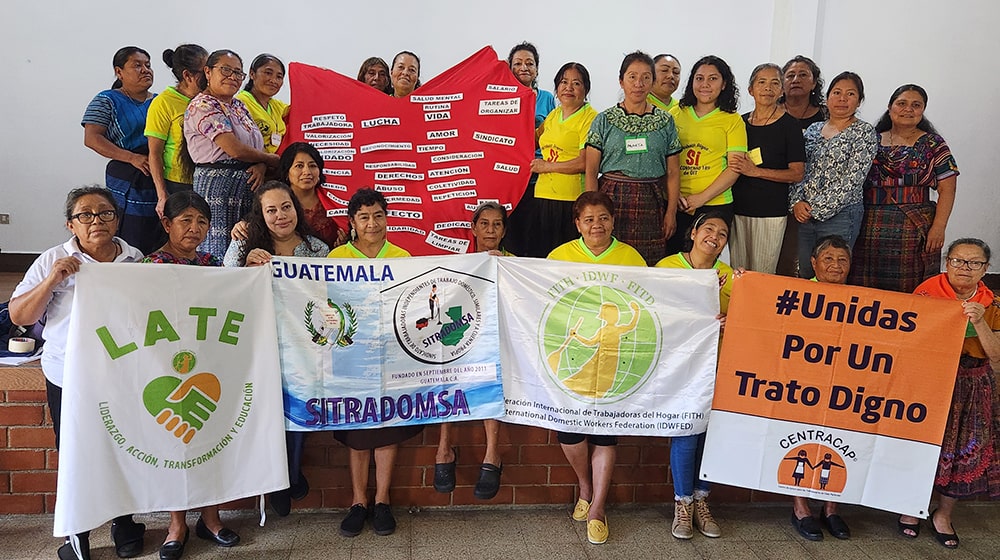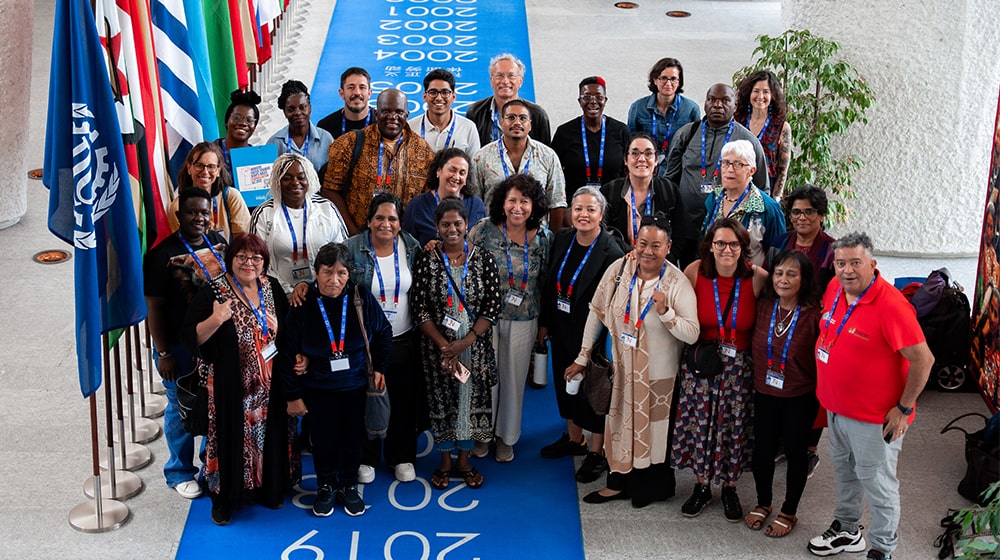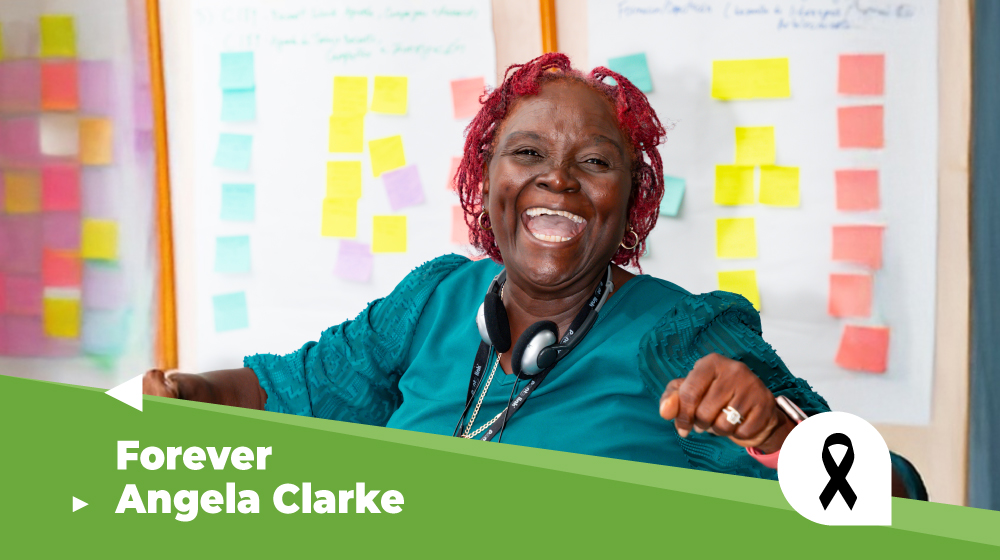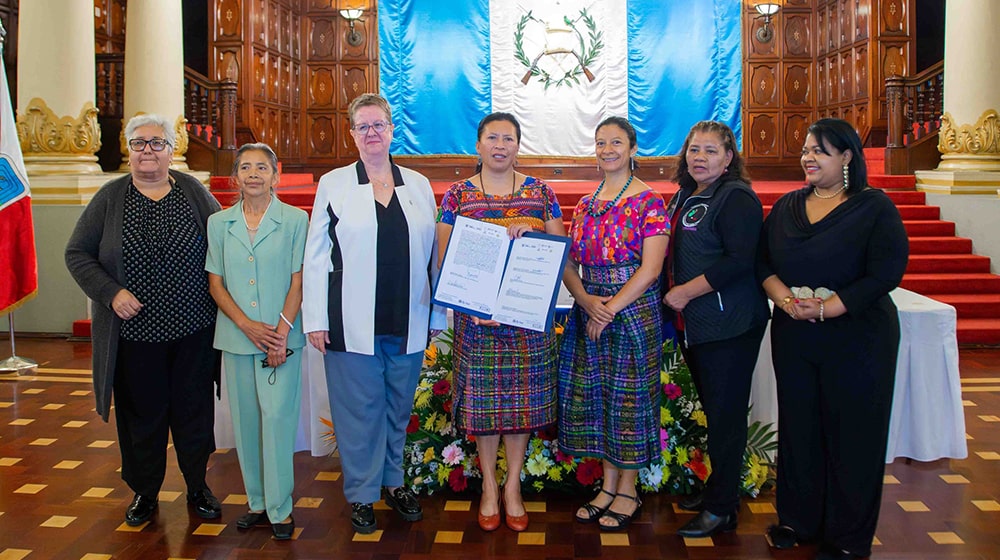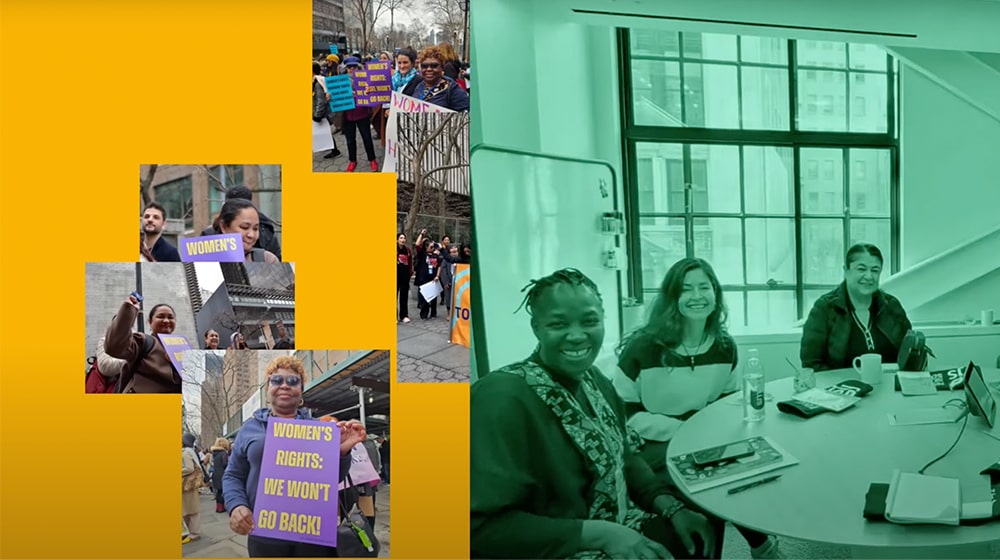SIMUTHRES positions the sector’s demands on the government’s agenda

Leaders of the Salvadoran domestic workers union SIMUTHRES succeeded in making their voices heard by Vice President Félix Ulloa, who committed to taking action to address the sector’s demands. This signal of political will represents a historic opportunity for 170,000 women who, for over a decade, have been struggling for their rights with the support of the International Domestic Workers Federation (IDWF).
During an intersectoral meeting organized by the movement Alianza Ciudadana, the Salvadoran domestic workers union SIMUTHRES (Sindicato de Mujeres Trabajadoras del Hogar Remuneradas Salvadoreñas) handed Vice President Félix Ulloa a document outlining the sector’s demands and received a strong commitment from him: “I commit to being an intermediary for this agenda and to meet with you as many times as necessary so that we can identify the solutions for each of the issues raised. The vice presidency can act as a facilitator and properly channel these demands,” stated Ulloa, who is also a candidate for vice president in the upcoming national elections on February 4, running alongside the current president Nayib Bukele as part of the presidential ticket.
The petition presented by SIMUTHRES to Ulloa highlights the following demands:
- Ratification of ILO Convention 189 and adoption of a national legal protection framework in line with this binding international instrument.
- Mandatory social protection (currently, registration with the Social Security for DWs is voluntary, and contributions are lower than those of other contributors), which includes access to health services, maternity leave, and retirement and pension systems.
- Minimum wage in line with the cost of living (DWs’ monthly salary ranges from $170 to $200, while the cost of the basic food basket is $247).
- Written employment contract registered with the Ministry of Labor.
- Standard working hours policy.
- Occupational health and safety measures.
- Protection for migrant DWs.
The majority of the 170,000 women who make up the paid domestic work sector in El Salvador work in the informal economy, without any regulations overseeing their activity. This results in a lack of access to social security, absence of employment contracts, and extremely low wages. The country has not yet ratified ILO Convention 189 or established a minimum wage for domestic workers, even though the Court issued a ruling (in February 2020) instructing the Ministry of Labor to set it within a maximum period of 12 months. It is worth noting that in November 2019, SIMUTHRES filed a writ of amparo, urging the Supreme Court to declare unconstitutional the method by which salaries are privately negotiated between domestic workers and employers.
For Érica Regalado, SIMUTHRES’ General Secretary, the commitment of the vice president to coordinate and follow up on the demands of domestic workers is an unprecedented and encouraging sign: “ILO Convention 189 is an opportunity for the Salvadoran state to recognize and protect domestic workers’ rights. The current period of change in our country represents a big opportunity for the state and the society to acknowledge the economic and social importance of paid domestic work. Furthermore, we are confident that ratifying C189 would facilitate the implementation of government strategies aimed at addressing the national care crisis,” said the union leader.
Carmen Brítez, President of the International Domestic Workers Federation (IDWF), issued a strong call to the Nayib Bukele government: ” Work should not just be about struggle and pain, but should also contribute to securing rights. Therefore, we call on El Salvador’s government to ratify and implement C189: it is a right owed to domestic workers. We will continue to fight for equal social justice, just like any other worker.”
It is time for the government of El Salvador to take concrete measures to ensure decent work and a dignified life for domestic workers, who, despite being a fundamental pillar of the Salvadoran economy and society, continue to be marginalized and excluded. A glimmer of hope is lit for those who contribute so much to the country’s greatness, but it also opens a door for political leaders to finally demonstrate their commitment to genuine social justice.

